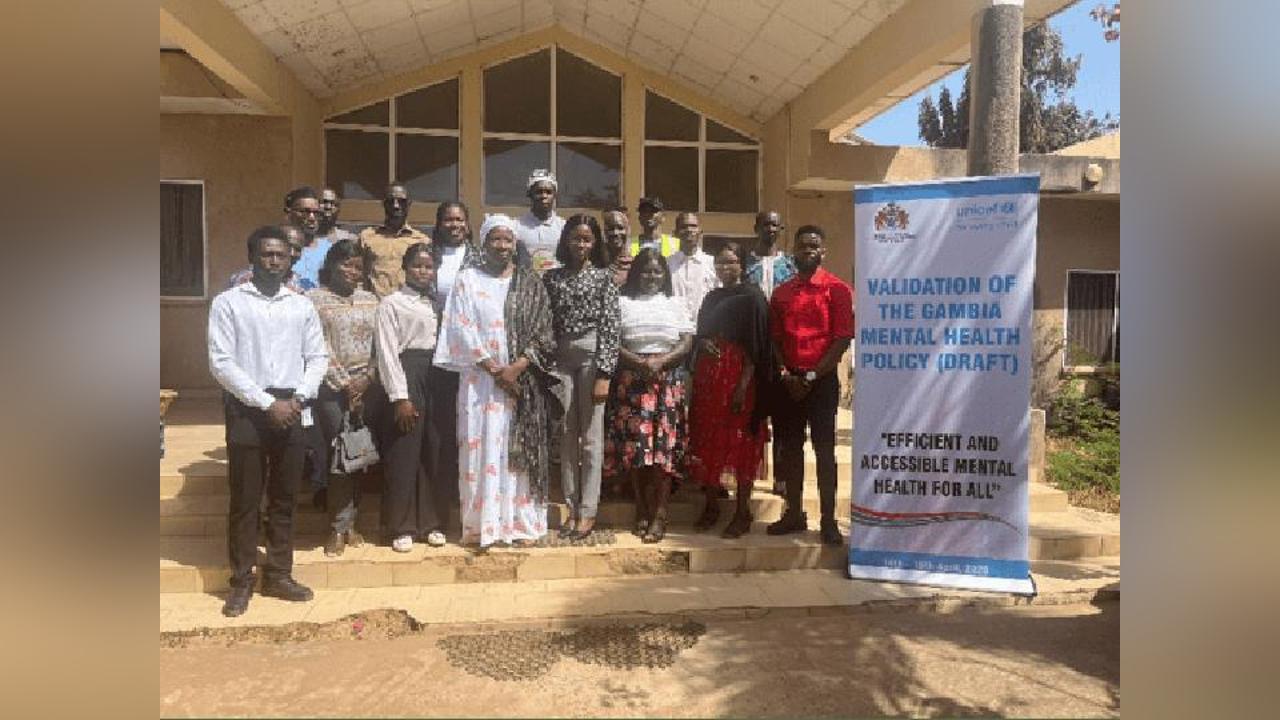Africa-Press – Gambia. As The Gambia faces a troubling rise in suicide cases, mental health advocates are sounding an urgent call for legal reform and intensified community engagement.
In a workshop organised by the National Mental Health Program in collaboration with the International Voluntary Mental Health Organisation (IVMHO) recently, mental health advocates focused on the pressing issues stemming from the criminalisation of suicide attempts, which many experts believe exacerbates the mental health crisis.
Centring their theme on “Strengthening NGOs and CSOs in Mental Health Advocacy.” They argue that laws governing suicide in The Gambia should be visited.
Mam Jarra Marega, programme manager of the National Mental Health Programme, articulated that negative perceptions of mental health create barriers to accessing essential services.
She emphasised that persistent stigma surrounding mental health significantly hinders individuals from seeking help, leading to tragic outcomes.
Currently, Gambia is using an outed Mental Health law called the Lunatic and Detention Act, which mental health advocates like Mam Jarra Marega and the National Assembly Member for Banjul North Hon Bah see as violating the rights of those suffering from mental health issues.
The workshop also raised the urgent need to reconsider the legal framework surrounding suicide attempts in The Gambia.
According to the statutes book of The Gambia, attempted suicide is a crime under the Criminal Code, Chapter XXIII, section 206, which can result in a prison sentence of up to two years and a potential fine. Is this correct
Bakary Camara, Metro at Tanka Tanka advocated for decriminalisation, arguing that fear of legal repercussions discourages individuals from seeking the help they need. He warned that this legal stigma only deepens their suffering.
“Community-based organisations are essential in addressing mental health issues, especially in rural areas where resources are scarce” he added.
Samba Baldeh, National Coordinator for Schools and Mental Health Programmes at IVMHO, emphasised the importance of education and resource distribution to empower individuals to seek help and support one another.
The workshop fostered collaboration among NGOs, government bodies, and community stakeholders. Amadou D Jallow, a Senior Mental Health Nurse, highlighted the necessity for coordinated efforts to ensure mental health services effectively reach those in need.
Discussions at the workshop align with the broader initiative to implement The Gambia Mental Health Policy 2025-2035, aimed at addressing mental health challenges comprehensively through advocacy, resource allocation, and community engagement.
Community engagement, education, and open dialogue are vital for dismantling stigma and ensuring individuals receive the necessary support and care.
With suicide attempts criminalised, experts argue for decriminalisation to combat stigma and encourage individuals to seek help, marking a pivotal moment for mental health awareness and action.
For More News And Analysis About Gambia Follow Africa-Press






